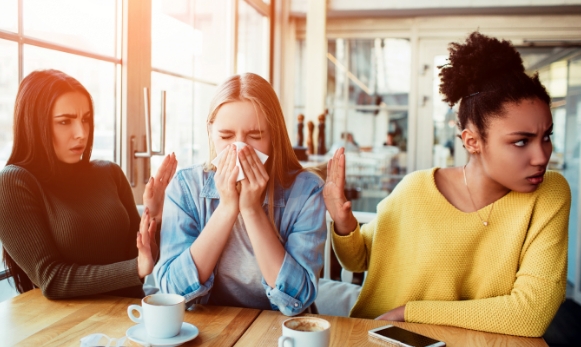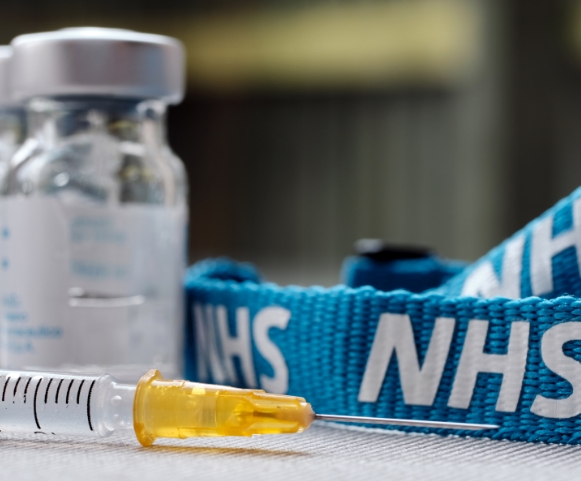Influenza Vaccination
Your pharmacist can give you or your child over 13 years old a flu vaccine. This will help protect against infection of flu for a year. The service is for all groups of people, not just older people or people with medical problems. This is a private service, not funded through the NHS. There is a fee payable for flu vaccination from your pharmacy.


Common Side Effects
Most people have few or no side-effects from vaccination. Common side effects include:
- Redness, swelling, pain, bruising, itchiness and hardness at the injection site
- Slight temperature, headache, muscle & joint pain
Sometimes your Pharmacist will not be able to provide the flu vaccine. If this happens, you may be advised to see your doctor or surgery nurse.
Influenza (flu)
Flu infections usually happen between October and March. Symptoms include: sudden fever, muscle aches and pains, sweating, feeling exhausted and needing to lie down, dry, chesty cough, and sneezing. It is more than just a nasty cold.
Flu Vaccination
Vaccination is given from September to March. A vaccine in the autumn will provide protection through the winter and spring. It takes about 14 days for the vaccine to take effect. Flu vaccine gives 60 to 70% protection. Some people still get flu after vaccination, although it is usually milder.


Free Vaccination On The NHS
Some people at ‘high risk’ from the flu are vulnerable to complications from infection. They qualify for free vaccination on the NHS. This includes people 65 years and over, people with heart or lung conditions, including some people with asthma, people with some serious kidney and liver disease, diabetics and some people caring for or working with vulnerable people, and others. If you are not sure if you can have vaccination through the NHS, ask your doctor or surgery nurse.
Protect Yourself And Others Against Flu By:
- coughing or sneezing into a tissue
- throwing a used tissue away as soon as possible
- washing your hands as soon as possible
- having a flu jab every year particularly if you’re in an at-risk group
Further information can be found at the NHS Choices website: www.nhs.uk/livewell/winterhealth/pages/fluandthefluvaccine.aspx